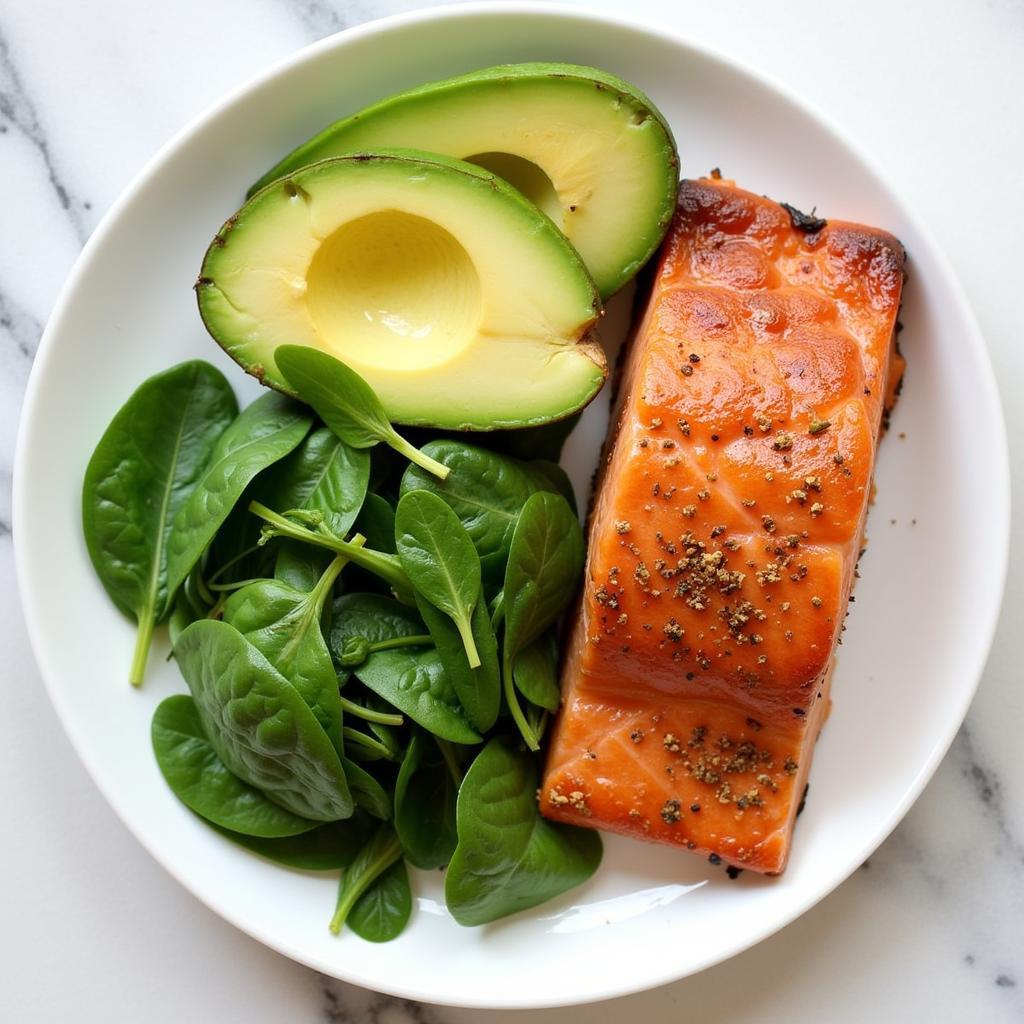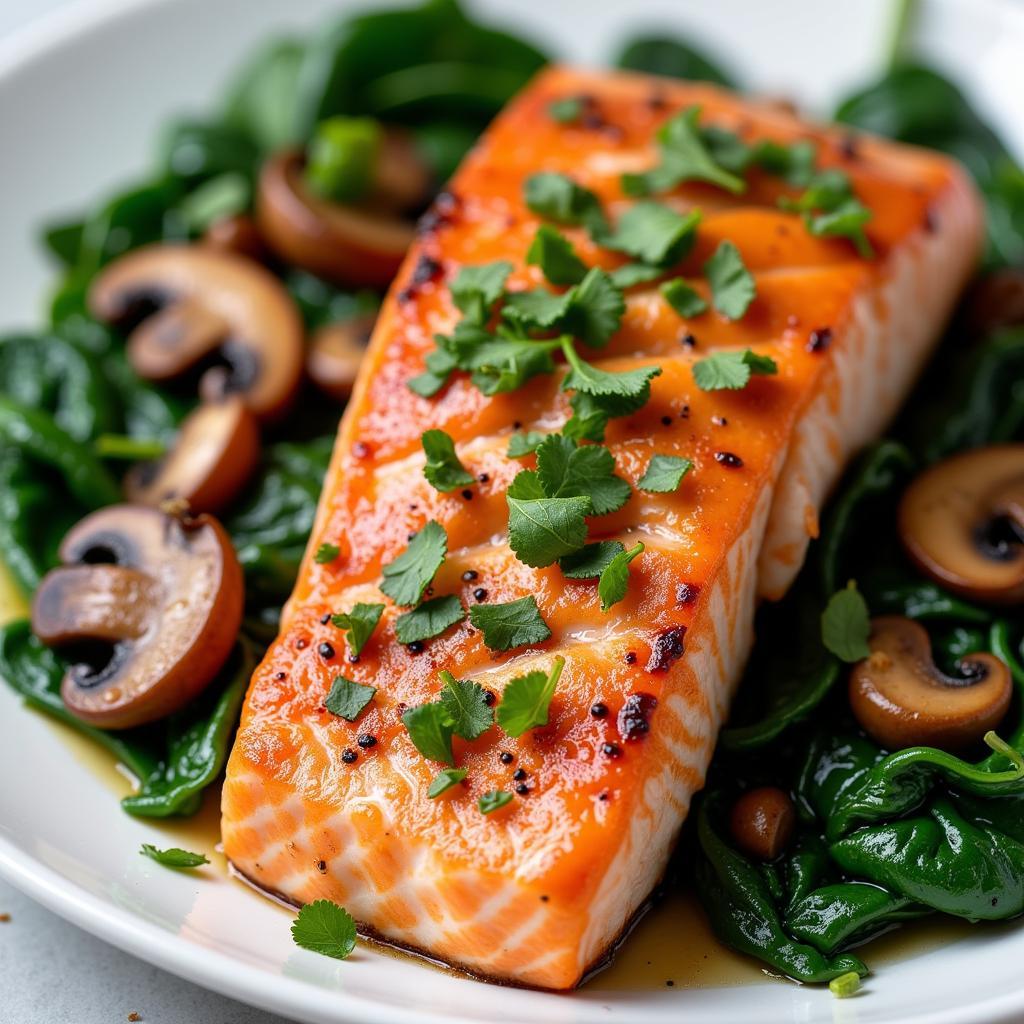Maintaining electrolyte balance is crucial on the ketogenic diet, especially potassium. When you restrict carbohydrates, your body releases water and electrolytes, including potassium. Knowing which High Potassium Keto Foods to include can help prevent unpleasant side effects like fatigue, muscle cramps, and constipation, and keep you feeling your best. Let’s dive into the world of potassium-rich keto options and ensure your low-carb journey is a healthy and successful one.
Why is Potassium Important on Keto?
Potassium plays a vital role in several bodily functions, including nerve transmission, muscle contraction, and fluid balance. On a ketogenic diet, where carbohydrate intake is drastically reduced, maintaining adequate potassium levels becomes even more essential. The initial shift to keto can lead to increased urination, resulting in the loss of electrolytes like potassium. Low potassium, also known as hypokalemia, can manifest in various symptoms such as muscle weakness, cramps, fatigue, and even heart palpitations. By prioritizing high potassium keto foods, you can effectively mitigate these risks and optimize your overall well-being.
A balanced approach to the ketogenic diet isn’t just about minimizing carbs; it’s about nourishing your body with the right nutrients. Incorporating plenty of potassium-rich options can make a significant difference in how you feel and how effectively your body functions. Check out our other resources like our Burning Man food list for more diverse meal ideas.
 Avocado slices on a plate with other keto-friendly foods
Avocado slices on a plate with other keto-friendly foods
Top High Potassium Keto Foods to Enjoy
Here are some excellent sources of potassium that align perfectly with the ketogenic lifestyle:
- Avocado: This creamy fruit is a keto staple and a great source of potassium. Half an avocado provides approximately 487mg.
- Spinach: A versatile leafy green that can be added to salads, smoothies, or sauteed as a side dish. One cup of cooked spinach packs around 839mg of potassium.
- Salmon: A fatty fish rich in omega-3s and potassium. A 3-ounce serving offers roughly 326mg.
- Mushrooms: These fungi are surprisingly low in carbs and high in potassium. One cup of sliced portobello mushrooms contains about 421mg.
- Cauliflower: A cruciferous vegetable and a versatile keto ingredient. One cup of cooked cauliflower provides around 362mg of potassium.
Remember, diversity is key! Exploring different high potassium keto foods ensures you’re getting a wide range of nutrients while enjoying delicious meals.
“Potassium is often overlooked on keto, but it’s essential for optimal performance. Don’t forget to include potassium-rich foods in your daily meal plan,” says Dr. Emily Carter, a registered dietitian specializing in ketogenic nutrition.
 Keto-friendly salmon dinner with spinach and mushrooms
Keto-friendly salmon dinner with spinach and mushrooms
How to Incorporate High Potassium Keto Foods into Your Diet
Adding these foods into your keto meal plan is easier than you think. Here are some ideas:
- Keto Smoothies: Blend spinach, avocado, and unsweetened almond milk for a quick and nutritious breakfast.
- Salmon with Roasted Vegetables: Pair baked salmon with roasted cauliflower and asparagus for a flavorful dinner.
- Mushroom and Spinach Omelet: A protein-packed breakfast or brunch option with added potassium benefits.
- Avocado Salad: Combine avocado with other keto-friendly vegetables like cucumber, tomatoes, and olives.
“Focusing on whole, unprocessed foods is the best way to ensure you’re meeting your potassium needs on keto,” adds Dr. Carter. You can also find some great options for foods with potassium keto in our dedicated guide.
Conclusion
Prioritizing high potassium keto foods is vital for a successful and healthy ketogenic journey. By incorporating these delicious and nutrient-rich options into your diet, you can maintain optimal potassium levels, avoid unpleasant side effects, and enjoy sustained energy and well-being on keto. Remember to consult our guide on Dr. Berg cruciferous food for more valuable information.
FAQ
- What are the signs of low potassium on keto? Common signs include fatigue, muscle cramps, constipation, and weakness.
- How much potassium do I need on keto? The recommended daily intake varies, but aiming for around 4,700mg is a good starting point.
- Can I take potassium supplements? Consult your doctor before taking any supplements.
- What other electrolytes are important on keto? Sodium and magnesium are also essential.
- Are all leafy greens high in potassium? While many are, it’s best to check nutritional information.
- Can I eat bananas on keto? Bananas are relatively high in carbs and should be consumed sparingly.
- How can I track my potassium intake? Using a food tracking app or journal can be helpful.
If you need further assistance, please contact us at Phone Number: 02437655121, Email: minacones@gmail.com, or visit us at 3PGH+8R9, ĐT70A, thôn Trung, Bắc Từ Liêm, Hà Nội, Việt Nam. We have a 24/7 customer support team.